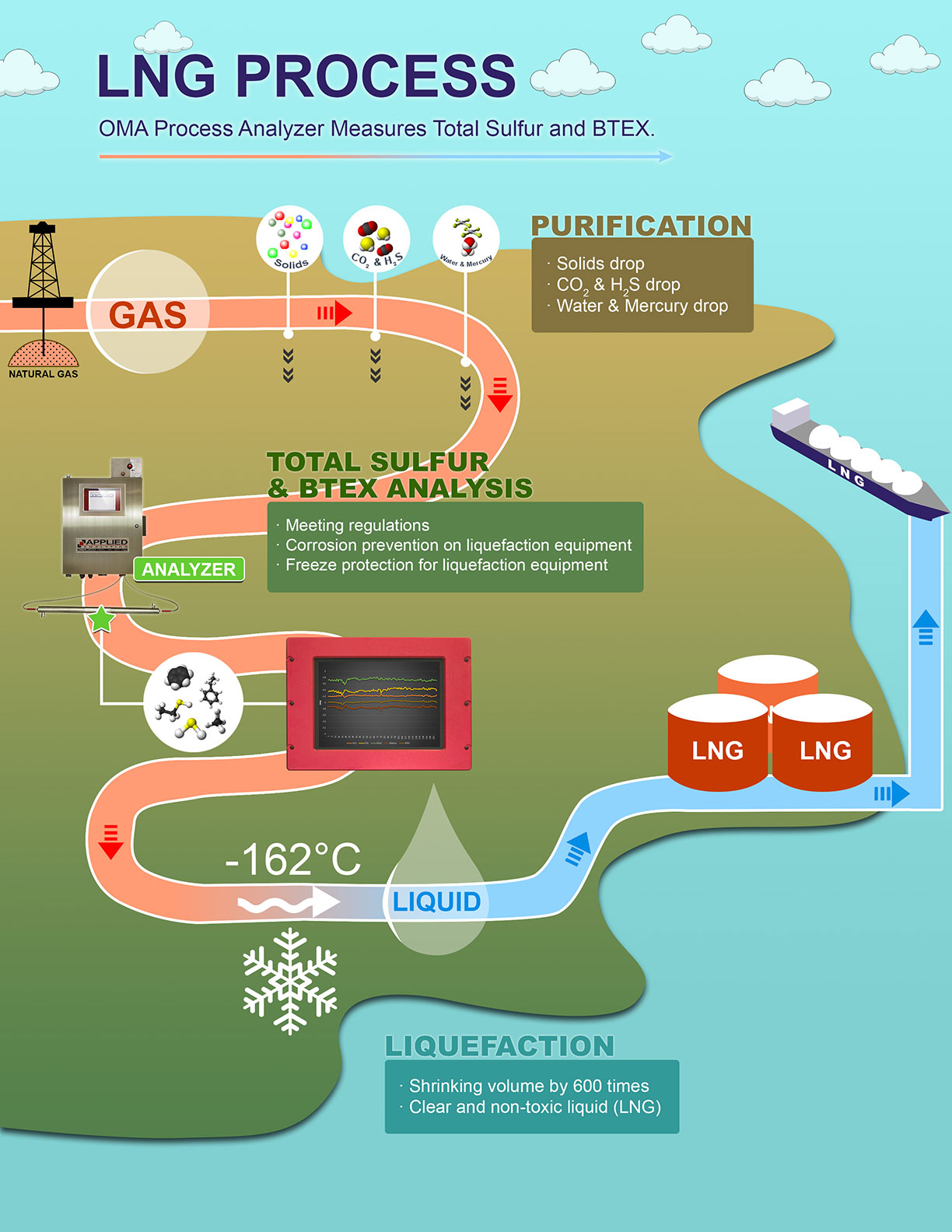Ahmedabad
(Head Office)Address : 506, 3rd EYE THREE (III), Opp. Induben Khakhrawala, Girish Cold Drink Cross Road, CG Road, Navrangpura, Ahmedabad, 380009.
Mobile : 8469231587 / 9586028957
Telephone : 079-40098991
E-mail: dics.upsc@gmail.com

Liquefied Natural Gas
News: The European Union is investing billions in infrastructure in its effort to replace Russian fuels with liquefied natural gas. This could prove to be a dead end — both for taxpayers and for the climate.
What is LNG?
• Liquefied natural gas (LNG) is natural gas that has been cooled to a liquid state, at about -260° Fahrenheit, for shipping and storage. The volume of natural gas in its liquid state is about 600 times smaller than its volume in its gaseous state. This process makes it possible to transport natural gas to places pipelines do not reach.
• Liquefying natural gas is a way to move natural gas long distances when pipeline transport is not feasible. Markets that are too far away from producing regions to be connected directly to pipelines have access to natural gas because of LNG.
• In its compact liquid form, natural gas can be shipped in special tankers to terminals around the world. At these terminals, the LNG is returned to its gaseous state and transported by pipeline to distribution companies, industrial consumers, and power plants.
Pipeline vs LNG? Which has better prospects?
• Affordability
o LNG energy projects are among the most expensive and technically complicated, so the EU is likely to face high energy prices if it makes greater use of LNG shipments.
• Energy Efficiency and GHG emissions
o The LNG supply chain tends to be more energy and greenhouse gas intensive than the supply chain for pipeline gas, because of the extra processing steps.
o LNG may be more favourable with respect to greenhouse gases compared to pipeline supplies under certain conditions, e.g. when the alternative is very remote pipeline deliveries of gas or when LNG is brought to the end-users in liquid form and then re-gasified on-site.
• Quality
o LNG is of superior quality to pipeline gas, because it is purer, has higher methane and energy content, and has a more stable composition.
• Shipping Cost
o LNG shipping costs tend to be the most volatile cost component in the overall LNG supply chain and have a major impact on the competitiveness of LNG supplies.
What are the concerns raised?
• The European Union has announced its intent to become climate-neutral by 2050. Germany is aiming for 2045. If the EU burns more LNG, however, emissions will rise.
• Shifting toward LNG would not only be in conflict with the national climate targets but would constitute a breach of national legislation and international commitments under the Paris Agreement.
What should be the way forward?
• Cheaper sustainable energy sources could instead make up the current gas deficit.
• Comprehensive energy efficiency upgrades. Germany, for example, can save more gas than new LNG terminals offer, by investing solely in building efficiency.
• Any LNG terminals that are built need to be easily retrofitted for green hydrogen to fast-track the clean energy transition.

Address : 506, 3rd EYE THREE (III), Opp. Induben Khakhrawala, Girish Cold Drink Cross Road, CG Road, Navrangpura, Ahmedabad, 380009.
Mobile : 8469231587 / 9586028957
Telephone : 079-40098991
E-mail: dics.upsc@gmail.com
Address: A-306, The Landmark, Urjanagar-1, Opp. Spicy Street, Kudasan – Por Road, Kudasan, Gandhinagar – 382421
Mobile : 9723832444 / 9723932444
E-mail: dics.gnagar@gmail.com
Address: 2nd Floor, 9 Shivali Society, L&T Circle, opp. Ratri Bazar, Karelibaugh, Vadodara, 390018
Mobile : 9725692037 / 9725692054
E-mail: dics.vadodara@gmail.com
Address: 403, Raj Victoria, Opp. Pal Walkway, Near Galaxy Circle, Pal, Surat-394510
Mobile : 8401031583 / 8401031587
E-mail: dics.surat@gmail.com
Address: 303,305 K 158 Complex Above Magson, Sindhubhavan Road Ahmedabad-380059
Mobile : 9974751177 / 8469231587
E-mail: dicssbr@gmail.com
Address: 57/17, 2nd Floor, Old Rajinder Nagar Market, Bada Bazaar Marg, Delhi-60
Mobile : 9104830862 / 9104830865
E-mail: dics.newdelhi@gmail.com